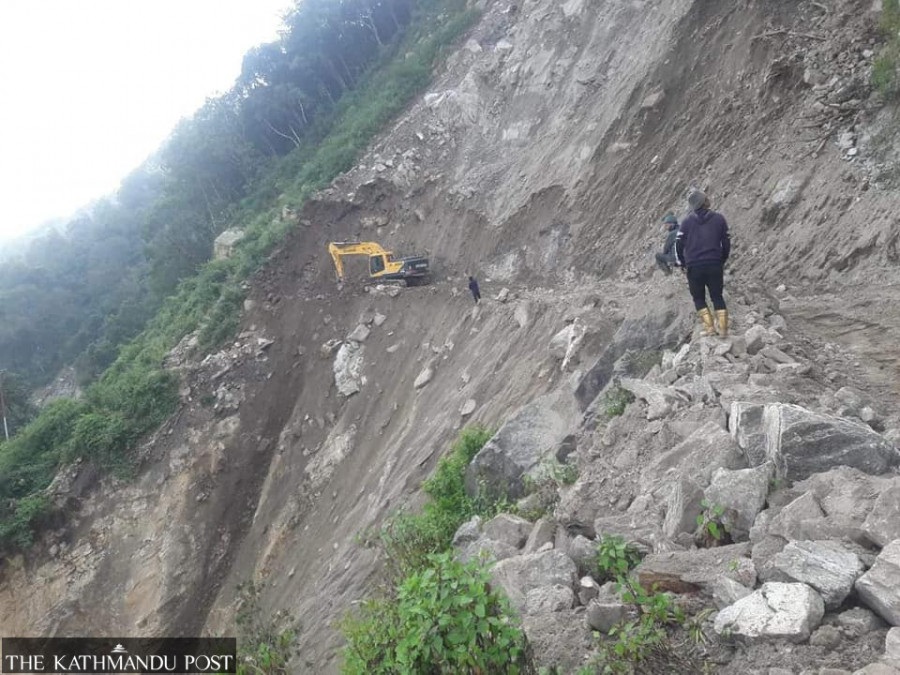Despite promises from the federal and the provincial governments, no help has reached the disaster-hit areas in the last three weeks.

Rajan Banu, a resident of Lekgaun in Miklajung, survived one of the worst disasters that hit his village in the third week of October. Unseasonal monsoon rains triggered massive landslides in Panchthar district killing 31 people—22 from Miklajung alone.
Miklajung Rural Municipality in Panchthar district is one of the local units worst hit by this year’s unseasonal rains.
The landslides on October 19 destroyed Banu’s two-storey house. His five-member family has since been taking shelter at a neighbour's place.
“It was around midnight and raining heavily. We could hear the landslides roaring so we rushed outside and fled to a safe place,” said Banu.
But Banu’s troubles did not end with the disaster. The multiple landslides have isolated Lekgaun, cutting the village from the outside world. Food supplies, among other essentials, have run out in the village, says Banu. The family could not salvage food grains from the disaster, leaving them with nothing to eat.
“It’s been more than three weeks since the disaster and none of the government authorities has come to our village to provide relief materials,” said Banu. “We have no food left. All roads connecting the village to the district headquarters, Phidim, are damaged. We may die of starvation if the situation continues. The disruption in the road network has also deprived us of medical services.”
Multiple landslides triggered by the downpour have damaged both Damak-Kanyatar-Chhanumber Budhabare and Ranke-Rabi-Bhedetar roads connecting Lekgaun to other parts of Panchthar district.
“Twenty families displaced by the landslides and six other impoverished families have nothing to eat now. Other households in the village have also started facing food shortages because of the road disruption,” Sanjaya Rai, a local school teacher, told the Post over the phone.
There are 664 people of 126 families in Lekgaun. The October landslides destroyed 20 houses and damaged many others in the village.
Besides Lekgaun, neighbouring Kholakharka and Bhangtar villages have also been hugely affected by the disruption in road service, electricity supply and drinking water connections.
The people’s representatives say the local unit is making efforts to resume the supply of essentials to disaster-hit areas but immediate results are not expected.
“Efforts are underway to repair the damaged roads and resume transportation. But there is no possibility to repair the road anytime soon,” said Amar Raj Makhim, the chairman of Muklajung Rural Municipality.
According to Makhim, authorities have already started road repair works on the Kanyatar-Chhanumber Budhabare section. It is expected to take at least seven days for the debris to be cleared from the road section.
The local people and the local authorities say that the federal and provincial governments have failed to ensure the well-being of the displaced people with no help forthcoming to feed the families.
“The local government has done everything to provide support to the landslide victims. But our efforts are not enough. We urged the provincial and federal governments for support but to no avail,” said Makhim.
On October 24, Prime Minister Sher Bahadur Deuba inspected the landslide-hit areas in Miklajung and assured relief to the affected people. Minister of Home Affairs Balkrishna Khand also visited the affected area a week later and reiterated the government’s commitment to distribute reliefs. But the victims have not received any support as of now.













